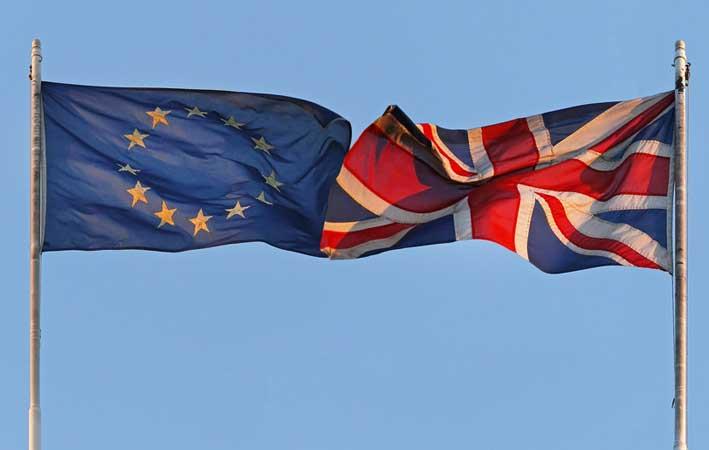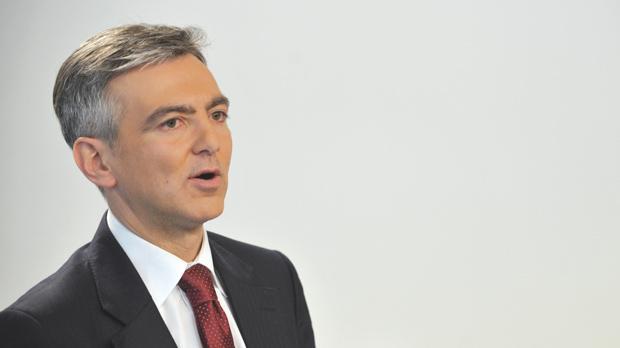Prime Minster Joseph Muscat said today that the effect of Brexit on Maltese students and workers living in the UK would not be immediate but the government was prepared to start working on bilateral agreements with the UK in this regard.
Speaking in Parliament this morning, Dr Muscat said Thursday’s vote result was shocking, not only for the UK but also for the EU. “We have a result and we have to respect democracy.”
Dr Muscat said he refused the “elitist” argument that the referendum was lost because of the uneducated, the elderly or some other sector of society. He said the EU should also work to prevent a chain reaction in other member states. “Yes, immigration is an issue. This was partly the result of a lack of action and decisions by the EU. Those who fear immigration are not racist. The EU should come up with a solution. It also has to learn from this result and become more flexible. We want an EU of bread and butter issues.”
He also blasted the ‘antiquated’ idea of the founding countries, insisting that the EU should not make a distinction between one country and another. While the EU had to discuss Article 50, which deals with an exit from the EU, Europe should mostly be debating the reasons why the British voted to leave in the first place. Dr Muscat also insisted that a Brexit agreement has to be less advantageous than full membership.

“Malta has a lot to lose but Malta is also a success story. The Cabinet met on Friday morning to discuss the challenges and opportunities. The country is prepared. The decisions taken in the past three years gave us the chance to mend the roof while the weather was good. We have a solid leadership and good economic governance.”
Dr Muscat said there will not be immediate drastic changes. The process has not yet started and could take up to two years.
“Part of the negotiations will happen under Malta’s presidency and the country looks forward to be a part of this. We do not know what will happen after our presidency since the UK was to be the next country to take up the role. There was informal talk that we could be asked to carry out the role for a full year. This is not our wish but if the EU, and if there is the necessary financial aid, we will not close our doors.”
The Prime Minister said the Central Bank of Malta had explained that there was no danger for Maltese banks in terms of liquidity or other matters.
As to the exemption of VAT on food and medicines, which used to be based on a UK exemption, Dr Muscat said this had become permanent and there was not risk of it being lost.
There are some 27,000 Maltese living in the UK, including 1025 students. “Nothing will change for them in the next two years. After exit they could be considered third country nationals and their fees could double. It is understood that there will be some agreement between UK and EU. If not, Malta will seek its own agreement with the UK.”

Major investors, including those in the health and aviation sectors, have confirmed that nothing has changed.
The situation of Maltese workers in Britain and British workers in Malta has not changed. The government, Dr Muscat said, could seek bilateral agreements with the UK.
There are many Maltese Pensioners who receive a British service pension and vice versa. There will be no changes for now but there have to be revisions.
The PM said the decrease in the value of the Pound Sterling will affect the British tourism market, but not in the short term. The MTA is taking the necessary measures, he said.
With regard to Maltese companies that export to the UK, which had suddenly faced increased costs, Dr Muscat said the government was monitoring the situation and was ready to step in, just like it had done during the Libya crisis.
Dr Muscat reiterated that Malta can be a gateway to the UK – a commercial bridge between the two blocs.
He also announced that those who have any questions on the subject can contact the government on servizz.gov.mt or Telephone: 153

Opposition Leader Simon Busuttil said the Opposition could associated itself with most of what the PM had said but had some reservations. People should be rational, he said, and not speak out of passion.
“We want to be part of a strong and united EU. In this sense we are offering the hand of cooperation to the government.”
He said it was ironic that a few minutes before he was forced to defend himself from a government that gave out incorrect information, related to this time working for Malta’s accession to the EU. “I do not expect you to show gratitude but I will not allow you to tarnish our reputation.”
The Prime Minister was saying that it would be suicide for Malta to leave the EU. It was a pity that a few years down the line he had made the exact opposite argument.
He said Dr Muscat had failed to mention that the permanent VAT exemption had been obtained by a PN government in 2009.
The PN Leader said the result was no big surprise, given the decades-long populist anti-EU campaign in the UK. He said these were reminiscent of the arguments the Labour Party made in Malta before the country joined the EU.
Closing the debate, Dr Muscat said he envisaged that there would be great opposition to a UK demand to join the single market without accepting any other EU freedoms, such as the freedom of movement.
Malta, he said, was in a tough position because Britain was a strategic ally. However Malta was also a member of the EU. While it was in Malta’s interest that the UK got a good deal after its exit from the EU, it could not enjoy all the benefits without being a member.
Dr Muscat said the negotiations on Britain’s exit from the EU and on its future relationship with Europe should take place at the same time. While decisions should not be taken with haste, undue delay would lead to uncertainty.
The Prime Minister said companies could leave the UK to remain in the EU single market but Malta would not act like a vulture. In fact, it would work with the UK. He said there were indications that some in the UK saw Malta as part of their solution.

Education Minister Evarist Bartolo said tuition fees in the UK had already increased threefold, up to £9,000. The number of Maltese undergraduate students in the UK had decreased to 240, and this was probably the result of the tuition fees hike. If Maltese students start being charged as much as international students their fees could double. This all depends on the future agreements between the UK and the EU, Mr Bartolo said.
Health Minister Chris Fearne said patients in the UK and others waiting to travel to the UK for care will not experience any changes and everything should proceed as planned. While the EU gave its citizens the right to free healthcare in all member states, Malta has a bilateral agreement with the UK, dating back to 1975, that allows for Maltese nationals to receive free healthcare in the UK. This agreement, which is renewed every year, should remain in place even after Britain leaves the EU.
With regard to health education, Mr Fearne said the Foundation Programme between Malta and the UK would also remain in place however future Erasmus programmes could possibly not be held in the UK anymore.
Tourism Minister Edward Zammit Lewis said that while the British market could be affected as a result of Brexit, Malta was strengthening its connections with other countries. Brexit could have more than one effect on the British tourism market, apart from the devaluation of the Pound, as travel insurance could also increase.